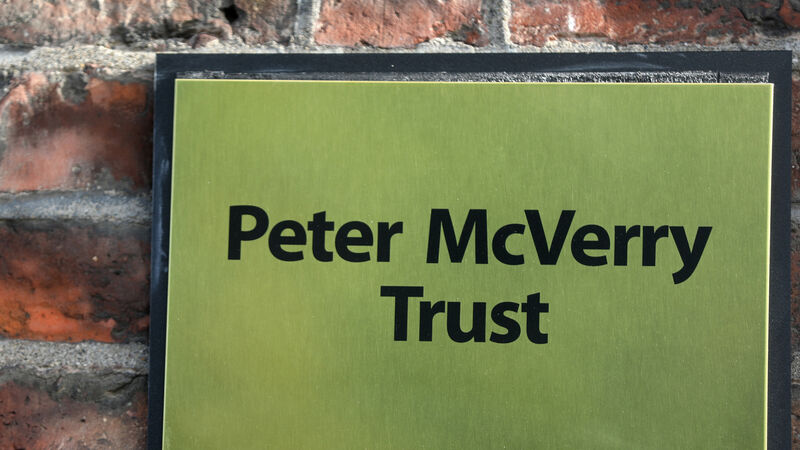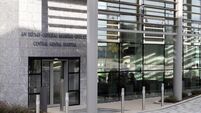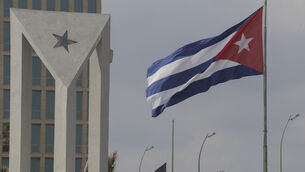Irish Examiner view: Peter McVerry Trust hit by perception problem

Financial management and commercial partnerships are challenging areas, but they can be managed. However, a charity which feels it appropriate to spend money on peacocks has a more fundamental problem of judgement. Picture: Leah Farrell/RollingNews.ie
In years to come, the financial chaos at the Peter McVerry Trust may fade, be forgotten, or perhaps just blend in with some of the other scandals of our time, but surely revelations about the peacock enclosure will always shine brightly in our memories.
The Public Accounts Committee (PAC) heard yesterday from Francis Doherty, who was CEO of the organisation for a brief period in 2023 before resigning when the full scale of the charity’s financial troubles came to light. The committee was told that under Mr Doherty’s predecessor, Pat Doyle, €350,000 was spent on a driveway at a shelter in Kildare, along with the construction of a new lift shaft and a peacock enclosure.
There were other astonishing revelations. Mr Doherty said that, when he took over as CEO, he found €18m was owed to various creditors, and that the trust had just €437,000 on hand across various bank accounts. A counselling company, which was paid €350,000, is run by the former auditor of the trust and was the entity where Mr Doyle had planned to work once his tenure came to an end.
Mr Doherty also told the committee he had been told the new lift was planned because his predecessor did not want staff or service users “using the same entrance as him”.
And then there is the peacock enclosure. If anything, it is almost too on the nose, the kind of detail a satirist would hesitate before including it in the broadest of broad comedies.
The financial problems faced by the Peter McVerry Trust are accompanied here by what might generously be termed a perception problem, in which the general public perceives the charity’s management as out of touch, to phrase it delicately. That perception problem may eventually affect other charities, as even the most generous of donors would be forgiven for being concerned about their preferred charity after revelations like yesterday’s.
Financial management and commercial partnerships are challenging areas, but they can be managed. However, a charity which feels it appropriate to spend money on peacocks has a more fundamental problem of judgement.
Millions of euro lost each night
The recent cold snap has brought home the reality of winter to all of us, with the mercury taking a sharp nosedive and frost accompanying our morning excursions.
It is all the more timely, then, to hear of the challenges facing thousands of families trying to cope with sub-zero temperatures. This week, the Oireachtas committee on housing heard from Alan Wyley, CEO of EnergyCloud — a body that works with local authorities and approved housing bodies to help those experiencing energy poverty, which is defined as a household spending more than 10% of its income on energy needs.
Mr Wyley told the committee that 550,000 Irish households are experiencing energy poverty, and quoted a recent report stating that three in 10 energy billpayers reported cutting back on essentials to afford their energy bills.
However, he added that huge amounts of energy are currently being wasted, pointing out that surplus energy available from windfarms at night is “dispatched down”, or lost. This occurs when the power grid operator instructs the energy source provider to produce less electricity or to shut down completely to ensure the stability of the entire grid.
How much energy is being lost? Mr Wyley said the average value of the energy being wasted was €1.4m per night, though it can reach as high as €2.7m on occasion.
Between January and September this year alone, energy with “an average retail value of €341m” was lost, he said, and approximately €2.5bn worth of renewable energy has been lost since 2017.
These are staggering figures. It was encouraging to hear the ESB tell the same committee hearing that it has several initiatives in hand to maximise the usage of electricity from renewables; and given the weather extremes we are likely to face in the future, there is a real urgency attached to those initiatives.
It is disappointing to realise how much energy has been lost in recent years, however. Here, as in many other areas, co-ordination and co-operation could have been of immense benefit.
lopsided deal
The arrival in Kyiv of the most senior US military group to visit Ukraine since US president Donald Trump took office has led to widespread speculation about a new peace framework to end the conflict in that country.
It is being reported that the deal was hammered out by US and Russian officials in meetings held in Florida some weeks ago, and it involves significant concessions on the part of Ukraine.
Those include giving up parts of the Donbas region that Ukraine still controls, cutting the size of its armed forces significantly, and foregoing many of its weapons.
This would likely to be a significant sticking point for Ukrainian president Volodymyr Zelenskyy, who has repeatedly ruled out the possibility of any territorial concessions to Russia. But if this proposal has been drafted without the involvement of Ukrainian or European representatives, then it is difficult to see how it can be adopted.
As EU high commissioner Kaja Kallas said yesterday: “We welcome any efforts to achieve that [peace] . . . For any plan to work, it needs Ukrainians and Europeans on board.”
Mr Zelenskyy cannot be presented with a fait accompli because it suits the American agenda, never mind appeasing the country which invaded his own.
CONNECT WITH US TODAY
Be the first to know the latest news and updates












